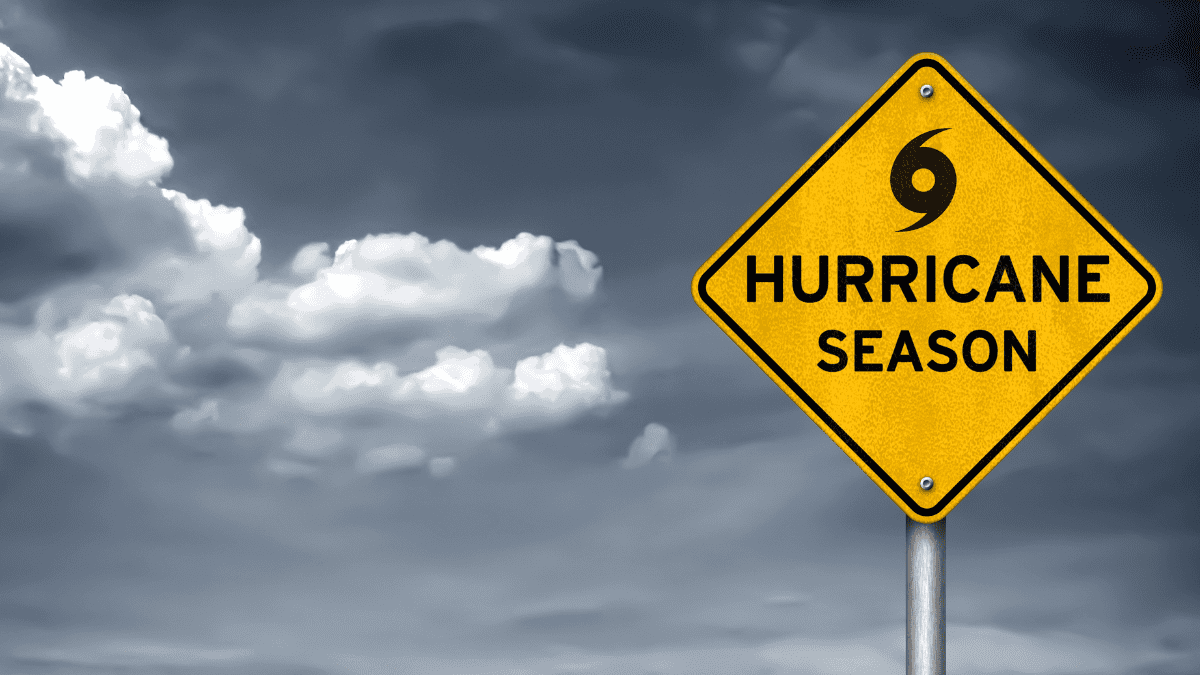
In April, meteorologists predicted a “slightly below-normal” 2023 hurricane forecast, estimating 13 named storms. With hurricane season kicking off on June 1 it’s critical to prepare against the threat of major storm damage.
When it comes to catastrophic weather events, being prepared is crucial. In this article, we will explore several actionable tips, shared by our friends at Vault, to protect you and your family.
Hurricane Preparedness: Pre-Landfall Preparation
Having a hurricane emergency plan in place before the season starts is essential. Here’s a checklist of key preparations:
- Collect copies of important documents and secure them in a safe location, including digital copies stored in two-factor authenticated cloud storage.
- Review insurance coverage and maintain updated photos or a video inventory of personal belongings.
- Compile contact numbers for your insurance company, doctor, veterinarian, and family members in your cell phone contacts.
- Identify evacuation routes and have alternate options if the primary route is inaccessible.
- Always ensure you have ample supplies and prescriptions for both family members and pets.
- Identify the safest place in your home to ride out a storm and ensure everyone knows its location.
- Be aware of where you could obtain sandbags if you have a property in an area prone to flooding. They could be available at home improvement stores or local municipalities during hurricane season.
- Always have an emergency kit ready. Include items such as batteries, flashlights, a first aid kit, garbage bags, tarps, gas cans or propane, cash for prolonged power outages, and cell phone chargers and charged battery packs.
- Keep nonperishable food and beverages on hand, including a sufficient water supply.
- Maintain and fortify storm shutters, roof tiles, stucco, garage doors, and generators.
- Remove potential debris, and trim trees and shrubs away from your home.
- Fill your car with gas and have cash available in case ATMs are out of service and you need to evacuate.
What to Do During a Hurricane
Ensure your safety by following these guidelines:
Secure Your Home
- Anchor lightweight items.
- Avoid draining your pool or placing patio furniture inside it.
- Stock up on supplies and assemble your emergency kit before hurricane season begins to avoid supply shortages.
Safeguard Your Documents
- Keep important documents in a secure, dry place or store them electronically using a reliable cloud-based service.
Sign Up for Alerts
- Utilize apps like the American Red Cross – Emergency app to receive weather alerts within a 100-mile radius.
- Stay informed with local weather services, the National Hurricane Center, and NOAA.
Prioritize your safety above all else
- Avoid going outside or being in the eye of the storm.
- Never use a barbecue grill indoors or in the garage.
- Keep portable generators outdoors in a well-ventilated area, at least 4 feet away from open windows.
- Stay away from doors and windows during the storm.
- Use candles sparingly and with caution, ensuring they are never left unattended.
In the event of a mandatory or elective evacuation, early planning is crucial:
- Choose a safe destination away from the storm’s path, ensuring it is pet-friendly if you have pets.
- Take important documents and your emergency kit with you.
- Secure your home by anchoring loose objects, bringing them inside, and locking all your doors.
- Stay connected with friends and family throughout the evacuation process.
Post-Hurricane Safety Tips
After a hurricane has passed, it’s important to remain cautious and follow these safety tips:
- Assess the surroundings for downed or dangling power lines. Do not attempt to touch or move anything near a power line.
- Be mindful of overloading outlets or using damaged outlets, as these can lead to fires or electrical shocks.
- If using a portable generator, ensure it is operated outside in a well-ventilated area to prevent carbon monoxide poisoning.
- Keep an eye out for loose animals in your community and report any sightings to local authorities.
- Refrain from drinking tap water until its safety has been confirmed.
- Open cabinets carefully, as items may have shifted during the storm and could fall off shelves.
- Dispose of spoiled food, erring on the side of caution if uncertain about its condition.
Conclusion
By preparing and implementing the appropriate safety measures, you can minimize your family’s risks associated with hurricanes. Remember to secure your home, stock up on essential supplies, safeguard important documents, sign up for alerts, prioritize safety during the storm, and plan for evacuation if necessary. Additionally, remain vigilant and take post-landfall precautions to ensure your well-being and that of your community. With thorough preparation and a proactive mindset, you can navigate hurricane season with confidence and resilience, ensuring the safety of yourself and your loved ones. Stay prepared, stay safe, and stay informed.
